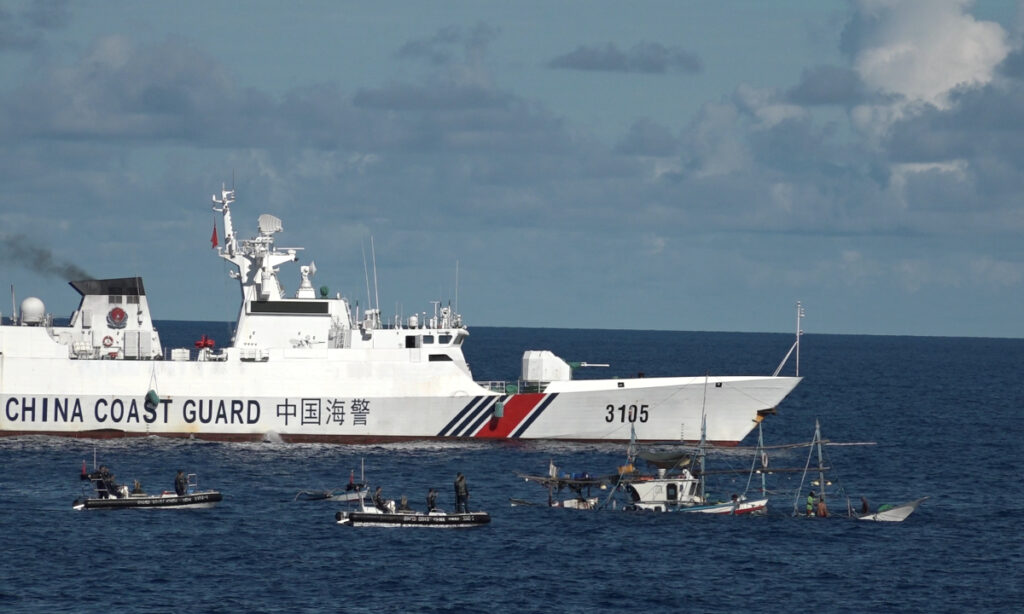China keeps rational attitude toward cooperation, opposes inciting confrontation: expert
The Philippines and Vietnam are reportedly set to hold their first joint maritime drills on Friday, a move that some Western media have interpreted as “historic” and aimed at China. However, experts argue that these reports overlook the fact that a Vietnamese vessel is currently on a friendly visit to China, and the drills between the Philippines and Vietnam are normal cooperation between sovereign nations and not directly related to maritime disputes.
Vietnam’s 90-meter ship CSB 8002 arrived at the port of Manila on Monday for a five-day port call and is scheduled to carry out training exercises with the Philippines’ 83-meter offshore patrol vessel, BRP Gabriela Silang, on Friday. Some media, including Nikkei Asia, reported the drills and claimed that this initiative aims to “counter” China in the South China Sea.
Ding Duo, a deputy director of the Institute of Maritime Law and Policy at the China Institute for South China Sea Studies, said the drills between the Philippines and Vietnam are normal cooperation, and some media outlets have over-interpreted them. These exercises reflect the two countries’ willingness to strengthen security and military cooperation, and should not be directly linked to maritime disputes.
Although both the Philippines and Vietnam have maritime disputes with China, the locations and contents of Friday’s drills indicate that the exercises are primarily focused on low-sensitivity, non-traditional security fields, Ding told the Global Times.
According to media reports, the drills include search and rescue operations, fire and explosion training, and message passing or communication exercises.
Commenting on the drills, Zhang Xiaogang, spokesperson for China’s Ministry of National Defense, said on July 25 that “We have consistently maintained that military cooperation between relevant countries should not target or harm the interests of a third party, nor should it undermine mutual trust among regional countries or disrupt regional peace and stability.”
China and Vietnam have also held frequent joint drills. For example, in June, the two countries’ navies concluded their 36th joint patrol in the Beibu Gulf. Additionally, Vietnamese missile frigate Tran Hung Dao arrived at a naval port in the city of Zhanjiang in South China’s Guangdong Province on Wednesday, marking the start of a five-day visit. During the visit, the Chinese and Vietnamese navies will organize ship tours, deck receptions, cultural exchanges, joint exercises, and other activities, according to the Xinhua News Agency.
Ding said China maintains a clear stance on international cooperation: it does not oppose or interfere with other countries’ collaborations, provided they do not target a third country or infringe on China’s sovereignty and maritime interests.
What China opposes are drills and joint patrols in the South China Sea that involve the Philippines and external countries, specifically those targeting China. China also opposes the formation of small cliques in the South China Sea, said Ding, noting that regional countries should be vigilant against any attempts to incite confrontations or alliances targeting one country.
“We maintain a rational attitude toward normal cooperation on security and defense among other countries, but oppose any actions that may intensify Cold War mentality or regional confrontations,” said Ding.
The exaggerated coverage of these drills by some Western media reflects a broader trend of external forces sensationalizing any South China Sea-related activity, which undermines trust and complicates the management of disputes, said the expert.
GT




